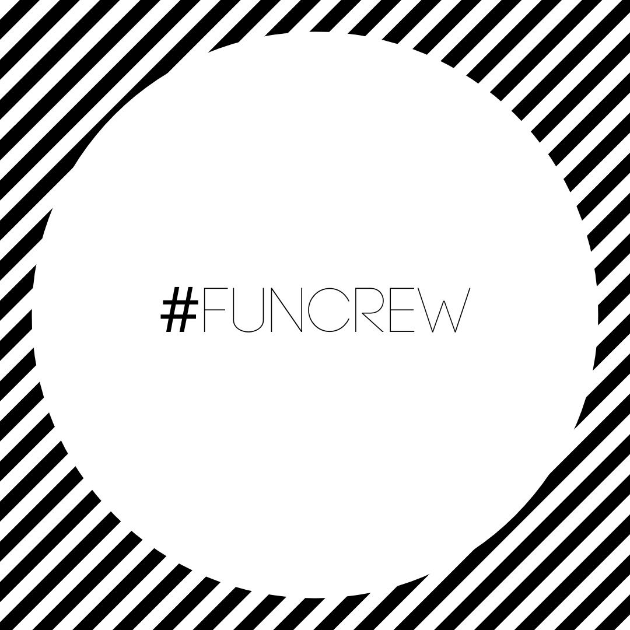Friday night I watched “Self-Made”.
The night it premiered on Netflix in the U.S.
Background
If you missed the memo, “Self-Made” is a four-episode mini-series chronicling a particular view on the professional life and epic ascent of the original diverse startup founder, Madam CJ Walker. She remains the first self-made black millionaire in the U.S according to the Guiness Book of World Records.
LeBron James is an Executive Producer.
And the story is loosely based on biographical work from Madam CJ Walker’s adopted granddaughter, named after Madam CJ Walker’s daughter A'lelia. Despite countless criticism from friends about this series’ portrayal of factual and historical events, to me, this imaginative retelling is rife with lessons in building lasting generational wealth. Rather than explore its cinematography or sociological aspects of this mini-series, I will instead focus primarily on its inspiring entrepreneurial elements that propel my project supporting diverse tech startup founders in New York City.
In this article, I will touch upon several themes I found particularly important for cultivating our aspiring accelerator for diverse startup founders, including pushing for folks like you and I to enjoy authentic spaces.
1. Generational wealth begins today
Well into the mini-series, Madam CJ heads to New York City in an attempt to expand her nation-wide advertising exposure in a mainstream publication, the 10 Cents or Less. She invites her daughter, A’Lelia, to join her (in place of her husband). A young A’lelia, like so many of us, became infatuated with entertainment during adolescence. Not the industry, but the lifestyle.
If you’re like me, you might find Madam CJ’s pleading with A'lelia, to grow up more quickly, all too familiar. Madam CJ pleaded for her daughter to put aside her childhood, whimsical fantasies and think more thoughtfully about her role in their familial legacy. Like most of us, Madam CJ’s pleading often fell on deaf ears, at least initially. However, when A’lelia arrives in Harlem and sees fashion trends and aesthetic styles worn by myriad New Negro models, her eyes open wide and she changes her tune (and so does Madam CJ about her daughter’s legacy, eventually). To Madam and A’Lelia running their family business is a ticket to freedom and a freer lifestyle for everyone. Slavery is fresh in their minds too. Juxtapose this ideal of generational wealth with CJ (her husband). Seemingly preoccupied with putting food on the table and paying monthly bills, CJ was focused on covering expenses right now. Madam CJ, however, thinks generationally with an melancholy continuity among slavery, share cropping and her iconic ascent. Consequently, her wealth extends for generations. A quick practical example of the impact of Madam’s paradigm comes during a scene where A'Lelia joins her mother to sell their hair grower door-to-door, as they move to Indianapolis.
Ransom’s role as family advisor
As a brief aside, if you’ve read Family Wealth, How to Keep it in the Family, you might appreciate Ransom’s role and character in this mini-series. His is critical. Ransom was a bellhop who took classes in incorporating at Columbia and later became Madam CJ’s close business advisor. But he was so much more. He was Walker's family adviser too, and later became CEO of the company after Madam CJ Walker’s death. As counsel, Ransom could express many risks involved in Madam’s route to multi-millionaire status, at every turn. Madam CJ often decided to take that risk anyway though. As a startup founder (or aspiring investor), you must know the risks involved in every business transaction. Even if you decide that ultimately, the juice is worth the squeeze.
2. Every founder or investor starts off as a salesperson
You’re probably experiencing a global economic calamity right now (regardless of when you read this). While the degree of devastation may vary, rest assured. As a founder or investor, your “starts” and “restarts” will be birthed in environments significantly less favorable to new entrants. And yet despite her eventual ascent, Madam CJ Walker burst onto the entrepreneurial scene to an emerging industry. As a salesperson first and foremost, she continued to sell through her death. In a way, so too was Sweetness. A lifelong salesperson. An illicit numbers’ man, Sweetness enters our mini-series frame, only selectively. Yet his appearance is inextricably tied to turning dollars into larger bills. And doing so legitimately, after our first introduction to his character. Sweetness, like Madam and Ransom’s character, still exist today in later descendants of American slaves, to an extent. On the borderline of a legal enterprise, on the outside looking in, and with an intrinsic and relatable desire to be seen as a respectable business person.
Although their lives are clearly distinct, perhaps Sweetness’ character resembles a familiar relatability in Jay-Z’s success story, among a broad swath of people. Sweetness was essentially limited by his era. And perhaps an absence of select moral musings, all while being comforted by his signature panache. Back to sales...
In an earlier scene, Madam CJ removes product tins from a benefactor and early mentor’s storage area to sell in a St. Louis bazaar frequented by recently freed persons, former slaves. Madam’s pitch here is straightforward. A story of a broken spirit rescued by a hair grower developing her now uplifted soul. Later scenes from her time in Indianapolis yield similar encounters with potential customers. They have no idea who Madam CJ is. To me, this shows that if we take a step back and think about it, we are all salespeople. Without getting into too much advertising theory, you might find that Madam CJ’s courage to employ an earlier version of word-of-mouth content marketing with a personal narrative style, an obvious choice. However her husband, CJ, led his advertising background to prefer a fantastical image, rather than Madam’s genuine heartfelt story.
You are a salesperson too
You too are a salesperson. Whether you believe it or not. Here’s the deal. If you’re interested in entrepreneurship generally or startups specifically, you must take in-person sales seriously, which means studying. I use Cardone University. Eventually, you leave the garage (or kitchen in the case of Madam CJ) and talk directly with customers, employees and investors. In such environments, you often have merely seconds to sell. And typically you’re selling to folks with a predisposition to say “no” and distrust you and are generally skeptical. In a way a cultural framing, because our ancestors didn’t have access to business transactions.
3. Commerce, education and diginity existed during slavery a bit.
Rather than be paralyzed with inhumane treatment, our ancestors still embraced commerce. And sought ways to maintain their dignity. In addition to raising awareness of our ancestors’ economic predicament, Self-Made shows us a variety of ways that dignity still existed during antebellum times. Just a few scores beyond emancipation, lessons from our ancestors’ plantation predicament on the plantation still can apply today. A clean white shirt was so much more than respectability politics. Cleophus' memory of meeting his wife, sold down to another plantation from a lost bet, with a clean white shirt in a dirty shanty, was about dignity in humanity. The series is teeming with an unrelenting color politics, actively explored in Self-Made. These identity politics are covered much better by others.
To me, colorism in general, and of the form grappled with in Self Made specifically, is not about sympathy. It’s about dignity. Everyone deserves dignity. How fitting, for imagery of Madam CJ’s parents to end the series watching over her convention with her in episode four, approvingly.
4. What does “Profit” Look Like?
If you ever run a profitable business, think back to the first time you genuinely understood what profit felt like. After moving to Indianapolis and converting their new house to an in-home factory, Madam CJ’s orders begin to overwhelm the Walker family home. Madam had more customers than inventory. More appointments than hairdressers. The Walkers outgrew their family kitchen and then their home. Everyone, including women, men and children worked to fill those orders too. It wasn’t enough. CJ eventually calls Madam over to state the obvious. They don’t have enough inventory, helpers or products. “Isn’t it great?” Madam CJ says.
That’s profit. More orders than inventory. Your temptation to run from this achievement won’t be easy to resist and shouldn’t be understated here. Once you reach it, however, friends and family close to you may say “don’t you have enough, already?”
“How much money do you need, really?”
It’s apparent in Self-Made that “just enough” is not an amount of money folks in our community have the luxury of experiencing in a lifetime. Not if your vision is set on serving others (rather than yourself), that is.
Helpful Self-Made tips
#1 research the market
#2 test your product within your power circle of family and friends
#3 apply your finished product in your locale
#4 break into new markets













